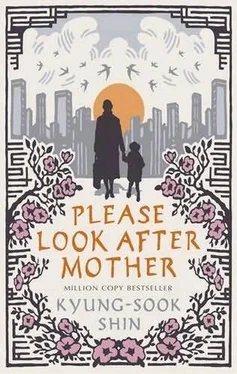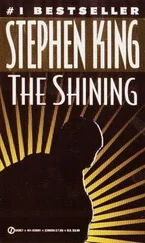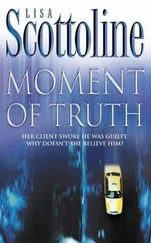You left the live octopus you’d bought at the Pohang fish market in the kitchen, since neither you nor your mom knew what to do with it, and you sat across from Mom at the table like old times, quietly eating a simple meal of rice and panchan, side dishes of water kimchi, braised tofu, sautéed anchovies, and toasted seaweed. When Mom wrapped a piece of seaweed around some rice, as she did when you were little, and held it out, you took it and ate it. After dinner, to digest the food, you and Mom walked around the outside of the house. It was no longer the same house you grew up in, but the front, side, and back yards were still connected, like before. In the back yard, on the ledge, there were still so many tall clay jars. When you were young, they were filled with soy sauce, red-pepper paste, salt, and bean paste, but now they were empty. As the two of you walked, Mom sometimes leading and sometimes falling behind, she suddenly asked you why you’d come home.
“I went to Pohang…”
“Pohang is far from here.”
“Yeah.”
“It’s farther to come here from Pohang than from Seoul.”
“Yeah, it is.”
“What made you come here from Pohang, when it seems like you don’t ever have time to visit?”
Instead of answering, you grabbed Mom’s hand, desperately, as if you were grasping for a lifeline in the darkness, because you didn’t know how to explain your emotions. You told Mom that in the early morning you had gone to lecture at a Braille library in Pohang.
“A Braille library?” Mom asked.
“Braille is what the blind read with their fingers.”
Mom nodded. As you circled the house, you told Mom about your trip to Pohang. For a few years, the Braille library had been asking you to visit, but each time you couldn’t because of a previous engagement. In early spring, you’d received another call. You had just published your latest work. The librarian told you that they wanted to publish your newest book in Braille. Braille! You didn’t know much about it, except that it was the language of the blind, as you told Mom. You listened to the librarian impassively, as if you were hearing about a book you hadn’t yet read. The librarian said they wanted your permission. If the librarian hadn’t said “permission,” you might not have agreed to go to the Braille library. That word “permission” moved you: blind people wanted to read your book, they were asking for your permission to recreate your book in a language only they could communicate through… You answered, “Sure,” suddenly feeling powerless. The librarian said that the book would be completed by November, and that Braille Day was also in November. He said they would appreciate it if you could come that day and participate in the dedication ceremony for the book. You wondered how things had gotten to that point, but you couldn’t go back on your “sure.” It probably helped that it was early spring, and November seemed far away. But time passed. Spring passed, summer came and went, fall came, and soon enough it was November. And then that day had arrived.
Most things in the world are not unexpected if one thinks carefully about them. Even something one would call unusual-if one thinks about it, it’s really just a thing that was supposed to happen. Encountering unusual events often means you didn’t think things through. Your trip to the Braille library and the events that occurred there were all things you could have predicted if you’d really thought about the Braille library. But you were busy in the spring, summer, and fall. Even on the day you headed to the Braille library, you weren’t thinking about the people you were going to meet there; you were worried that you would be late for the ten o’clock meeting time. You barely made it onto the 8 a.m. flight, then arrived in Pohang, took a cab to the Braille library, and went to the waiting room. The director sat down facing you, with the help of a volunteer. He greeted you politely-“Thank you for coming all this way”-and held his hand out. Trying to mask your nervousness, you shook it, saying brightly, “Hello.” His hand was soft. The director talked about your book until right before the event. You smiled and nodded at this blind man who had read your work, even though he couldn’t see you smile or nod. That day was Braille Day, their holiday. When you entered the auditorium, four hundred people awaited you, some still trickling in with the help of volunteers. There were men and women of all ages, but no children. The ceremony began, and a few people came to the front, one by one, and made little speeches. Some people received certificates of appreciation. They spoke about your book, and you went to the front to receive the Braille version. Your one book became four volumes in Braille. The books given to you by the director were twice as big as yours, but they were light. You heard applause as you returned to your seat with the books in your hands. The ceremony continued. As plaques were given to congratulate readers, you opened one of the volumes. At once you felt faint. An infinite number of dots on white paper. It was as if you had fallen into a black hole-as if you were walking on stairs you knew so well that climbing them didn’t even register in your mind and, while thinking about something else, you missed a step and tumbled down. Braille proliferated the white paper, each letter a hole made by a needle, words you couldn’t decipher at all. You told Mom that you’d flipped past the first page and the second page and the third page, and then closed the book. Because your mom was listening intently to your story, you continued.
At the end of the ceremony, you stood in front of everyone and talked about your work. When you laid the books on the dais and looked out at the audience, your back stiffened. You had no idea what to focus on, standing in front of four hundred people who couldn’t see.
“So what did you do?” your mom asked.
You told her that the fifty minutes given to you seemed never-ending. You were the type of person who looked into someone’s eyes when you talked. When you talked you sometimes told the entire story, or maybe only half, depending on the feeling you got from the person’s eyes. Some eyes coaxed out stories you’d never told anyone. You wondered, Does Mom know that I’m like that? In front of four hundred blind people, you didn’t know whom to look at or how to start talking. Some eyes were closed, some half open, and some hidden behind dark glasses; some eyes seemed to stare straight through you and your nervousness. Even though all eyes were aimed at you, you became silent in front of eyes that couldn’t see you. You wondered what would be the point of talking about your book in front of these unseeing eyes. But it wasn’t appropriate to talk about something else, such as anecdotes from your life. If anything, they should be telling you their life stories. Because you felt stuck, the first thing you said into the mike was “What should I talk about?” They all burst out laughing. Did they laugh because they thought you meant you could tell any story? Or to make you feel more comfortable? A man in his mid-forties replied, “Didn’t you come to talk about your work?” The man’s eyes were pointed at you but were closed. Focusing on them, you started to talk about the inspiration behind the book, the things you experienced emotionally during its writing, and the hopes you had for the book after you were done. You were surprised. Of all the people you’d met, they listened to your words the most intently. They demonstrated with their bodies that they were listening carefully. One person was nodding, and another pushed one foot forward, and someone else was leaning into the person in front of him. Even though you couldn’t understand a word of their writing system, they had read your book and asked questions and shared their thoughts. You told Mom that they revealed such positive feelings about that book, more than anyone else you had encountered. Mom, who was listening quietly, said, “Still, even they’ve read your book.” A short silence flowed between you and Mom. Mom asked you to go on. You continued.
Читать дальше











